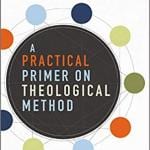George Hunsinger
Philippians (BTCB)
Grand Rapids, MI: Brazos, 2020.
Available at Baker Academic
Hunsinger’s Phippians commentary offers a mixture of poignant insights from Protestant dogmatics, Barthian exegesis, and resourcement of ancient tradition.
Concerning the Christ hymn, Hunsinger believes we should break down the division between soteriology and ethics, bringing together both imitatio Christi and conformatio Christ. He understands morphe theou to be about the nature of God – quoting Aquinas: “To be in the form of God is to be in the nature of God.” The point is not Jesus’s pre-existence, but his divine self-existence! He adds, “The idea of an Adam Christology, besides being dubious in itself, has no ecumenical standing in church history.” Further: “A Christ whose deity is diminished cannot be the Christ of the church’s gospel. He cannot be the object of worship, nor the incarnate Son who disclosed God’s triune identity, nor the world’s Savior by whom sin and death are destroyed.”
I’m not too sure what the Paul within Judaism crowd will make of his comment on Phil 3:3 – “Older measures of ritual purity have been rendered superfluous by the apocalyptic advent of Christ, who has ushered in the new aeon.”
On Phil 3:9, he takes pistis christou as an objective genitive, bold move for a Barthian scholar. That said, he adds, “Nevertheless, it is important to see that the ‘faith of Christ’ translation is not necessarily incompatible with seeing Christ as the object and content of faith. Christ, through his perfect faithfulness is efficacious for the bestowal of righteousness. It is a transformative event that brings justification, righteousness, and salvation to the world. Everything depends, however, on seeing Christ’s faithfulness (or vicarious obedience) as a pure gift carried out in our place and for our sakes.”
This is a rich and explicitly theological reading of the letter, truly out of the ordinary, very reminiscent of Barth’s own commentary on the letter. Not a historical exegesis, but a dogmatic exposition of the letter in light of Christian beliefs.












